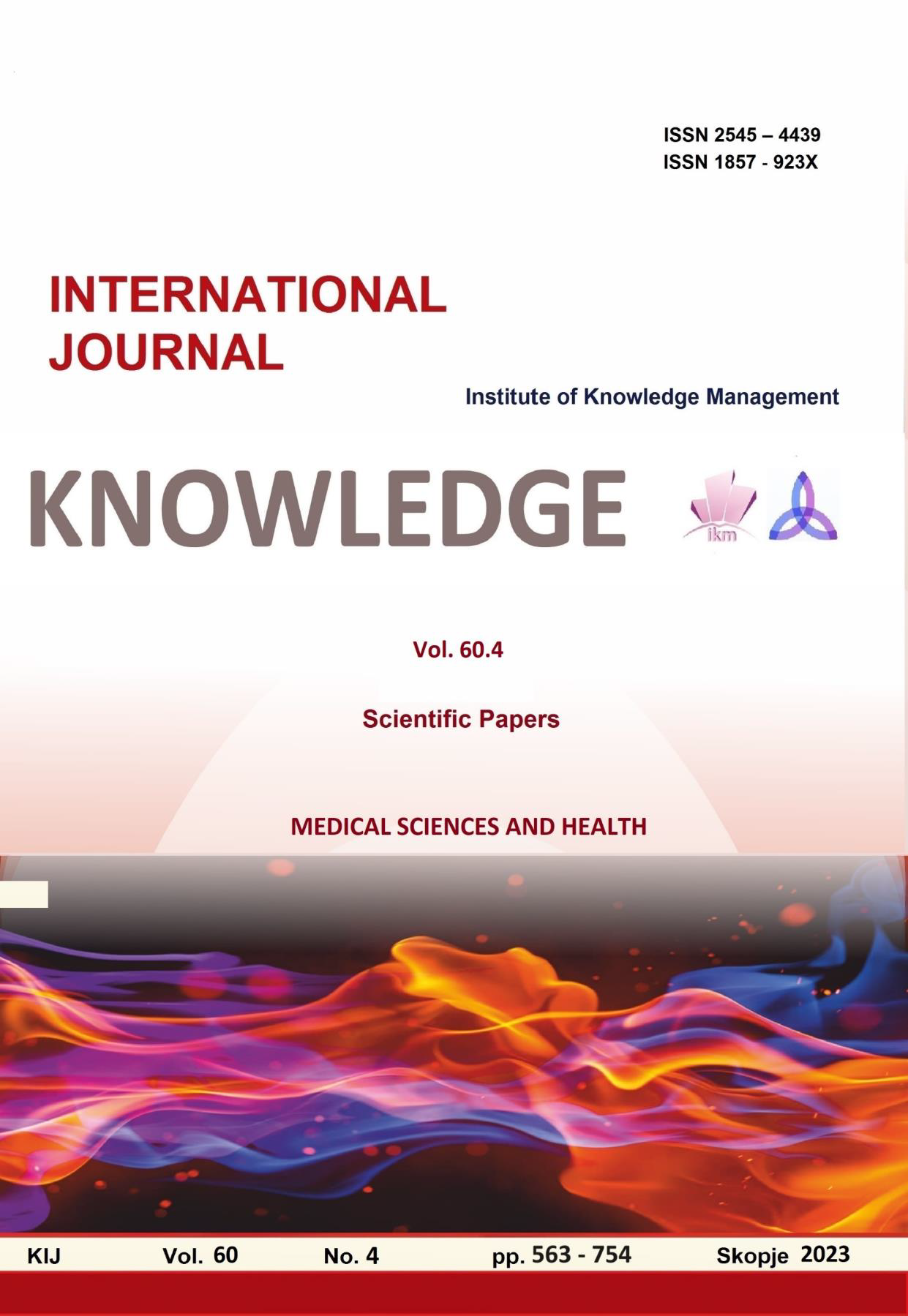КОРЕЛАЦИЈА ПОМЕЃУ ВРЕДНОСТИ НА ТИРЕОСТИМУЛИРАЧКИ ХОРМОН (ТЅН) ВО МАЈЧИНА КРВ И РИЗИК ОД СПОНТАН АБОРТУС ВО ПРВ ТРИМЕСТАР
CORRELATION BETWEEN ТHYROID STIMULATING HORMONE (TSH) LEVELS IN MATERNAL BLOOD AND RISK OF SPONTANEOUS ABORTION IN THE FIRST TRIMESTER
Author(s): Sanja Markova (Baldzieva), Svetlana JovevskaSubject(s): Social Sciences, Sociology, Health and medicine and law
Published by: Scientific Institute of Management and Knowledge
Keywords: thyroid stimulating hormone (TSH);spontaneous abortion;thyroid dysfunction
Summary/Abstract: Thyroid dysfunction is common among women between the ages of 20 and 45, and thus a more common etiology for spontaneous abortion in the first trimester of pregnancy. The prevalence of thyroid disorders in this group of patients is between 5 and 7% for subclinical hypothyroidism, 2 4.5% for hypothyroidism, 0.5 1% for hyperthyroidism and 5 10% for autoimmune thyroiditis/thyroid autoimmunity. Every normal pregnancy is followed by changes in the physiology of the thyroid gland, which are also reflected by changes in the thyroid function tests. Physiological adaptation is necessary so that the pregnant woman's body can respond to the increased metabolic needs during pregnancy. Diseases of the thyroid gland reduce its ability to adapt and respond to the new needs of pregnancy and this can result in a poor pregnancy outcome and, in most cases, spontaneous abortion. Objective: The objective of this paper is to determine the relationship between the level of thyroid stimulating hormone (TSH) in the first trimester of pregnancy and the occurrence of spontaneous abortion. Methods: Serum thyroid stimulating hormone (TSH), free and total thyroxine (fT4 and tT4) and antithyroid peroxidase antibodies (antiTPO Ab) were determined in 52 pregnant women in the first trimester of pregnancy. Women were divided into groups according to the level of TSH and the presence of antiTPO Ab, according to the latest recommendations of the American Thyroid Association (ATA) and according to the local reference values for TSH. The risk of spontaneous abortion in the first trimester was calculated for each group as well as the correlation with other parameters: age of the patients, week of occurrence of spontaneous abortion, history of previous spontaneous abortions and number of pregnancies. Results: Spontaneous abortion in the first trimester of pregnancy was detected in 38.5% (n=20) of the examined cases. Using the Chi Square test, a cut off value of 2.00 mIU/L for TSH levels was found to be a significant value in relation to the number of spontaneous abortions (p=0.005). Patients with spontaneous abortion in the first trimester with TSH value > 2.0 mIU/L were 65% of all. Patients with positive antiTPO Ab were 22%, and in 16% of the patients with spontaneous abortion antiTPO Ab were with a value above the upper reference value. Conclusion: In our study, results suggest a redefinition of the upper limit of reference values of TSH in the first trimester of pregnancy in addition to its reduction. History of previous abortion and age over 30 years were found to be significant predictive factors.
Journal: Knowledge - International Journal
- Issue Year: 60/2023
- Issue No: 4
- Page Range: 579-586
- Page Count: 8
- Language: Macedonian

